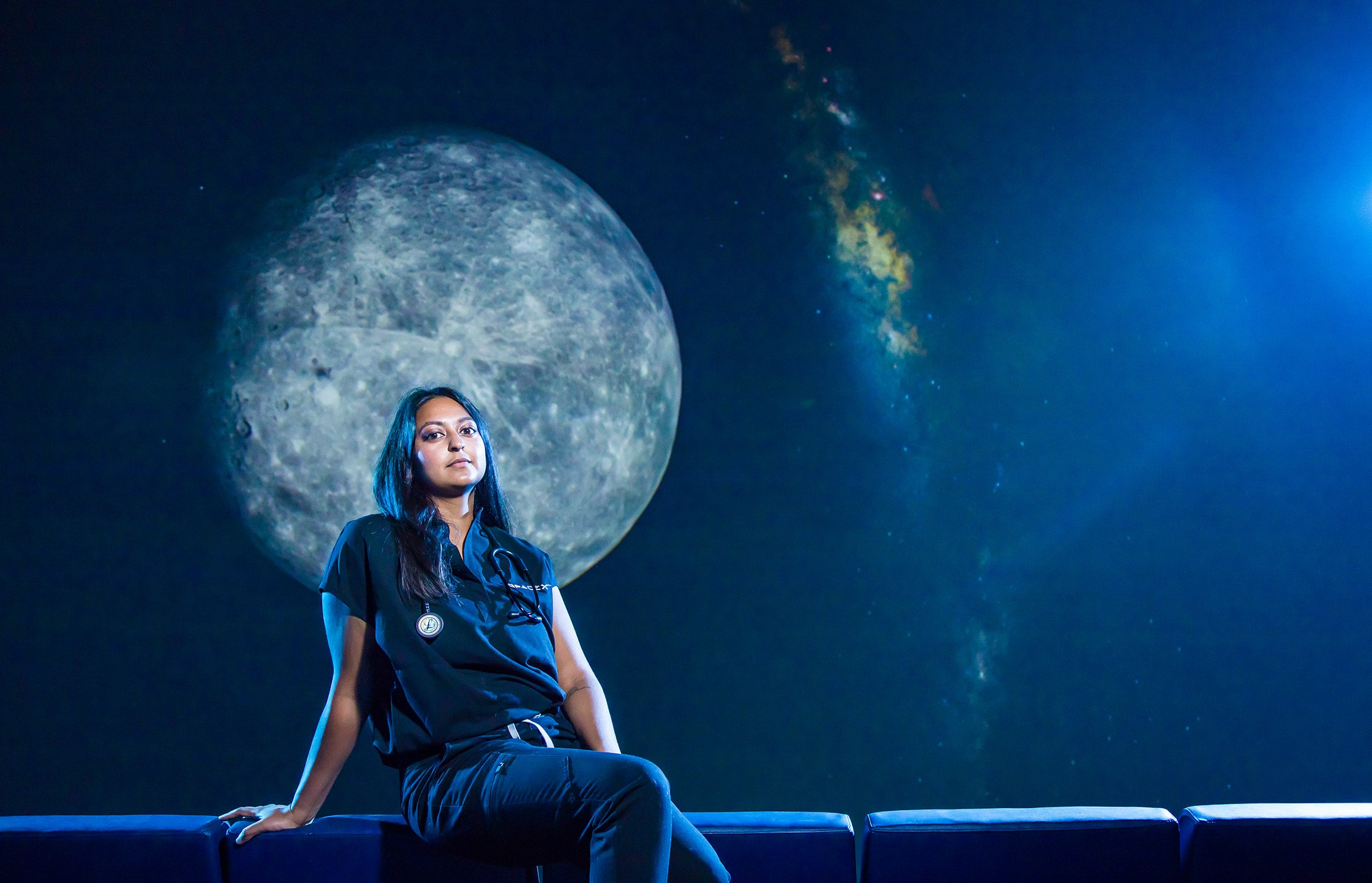Space Explorer
Miller School student Shilpi Ganguly dreams of practicing wilderness medicine on the moon or Mars
Photographed by Sonya Revell at the Phillip and Patricia Frost Museum of Science

E
ven as a little girl, Shilpi Ganguly could look to the stars and glimpse her future. The third-year medical student was still in elementary school when her science fair projects earned a stratospheric honor: In 2006, astronomers named a minor planet Ganguly 22706.
“Like any loving mother of an asteroid would, I check on her about once a year to make sure she’s still orbiting,” Ganguly said of the “celestial child” that sparked her passion for space. “I have always loved traveling, and I consider space the ultimate travel destination.”
Ganguly has visited 68 countries and every continent — three of them to climb their highest peaks, and many of them to seek experiences in wilderness medicine, a specialty practiced in austere environments with limited resources. Near the summit of Kenya’s Mount Kilimanjaro, she diagnosed a fellow climber with severe altitude sickness. On an expedition to Antarctica, she shadowed the ship’s physician and, once on the polar ice, assisted base camp physicians with two medical evacuations.
“That’s where my passion for wilderness medicine grew,” Ganguly said. “It was no longer something I just heard about. I experienced it.”
Her experiences inspired her “pandemic pet project”: an online lecture series featuring world authorities discussing a broad range of emergency and wilderness medicine topics, including, of course, space medicine. Originally aimed at fellow Miller School students, the series has evolved into the Global Organization for Wilderness Medical Education, attracting hundreds of health care professionals from around the world.
Ganguly’s dream of one day practicing medicine on the moon or on a months-long journey to Mars moved closer to the launchpad last spring. In June, she became one of the country’s first medical students to complete the formal space medicine rotation offered by the space exploration and transportation company SpaceX. When the rotation ended, she was invited to remain on the company’s medical flight team to assist with the history-making launch into space of an all-civilian crew on September 15.
“Space is the ultimate wilderness environment,” Ganguly said. “It’s extremely hostile, and humans are not supposed to be in it, but we’re going to go. I’m very excited about what’s to come.”
— Maya Bell![]()


